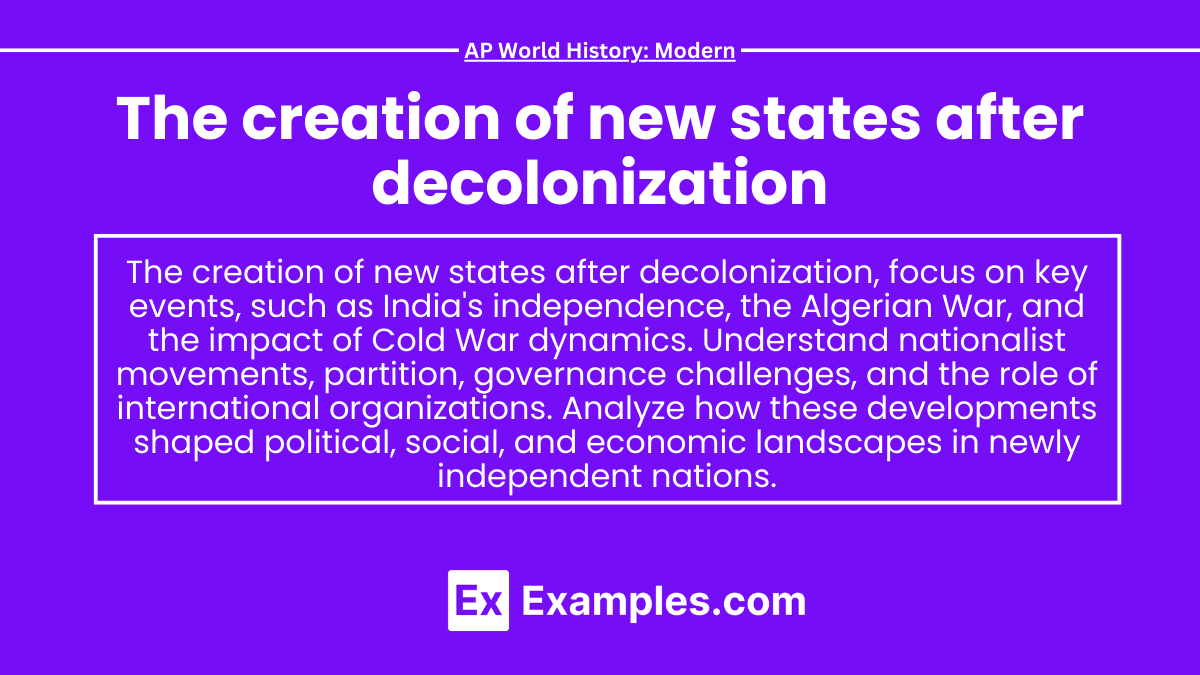The creation of new states after decolonization marked a pivotal moment in the 20th century, as former colonies gained independence and navigated their identities. This process, influenced by nationalism, international politics, and the aftermath of World War II, reshaped global dynamics. Understanding the complexities and outcomes of decolonization is crucial for analyzing contemporary geopolitical landscapes and historical contexts.
Learning Objective
In studying “The Creation of New States after Decolonization” for AP World History: Modern, you should learn to identify significant regions and movements involved in decolonization, examining the factors that contributed to the emergence of new nations. Analyze the political, social, and economic challenges these states encountered, and evaluate the long-term effects of decolonization on international relations and regional stability, providing a deeper understanding of their historical context and legacy.
1. Background on Decolonization (Post-WWII)
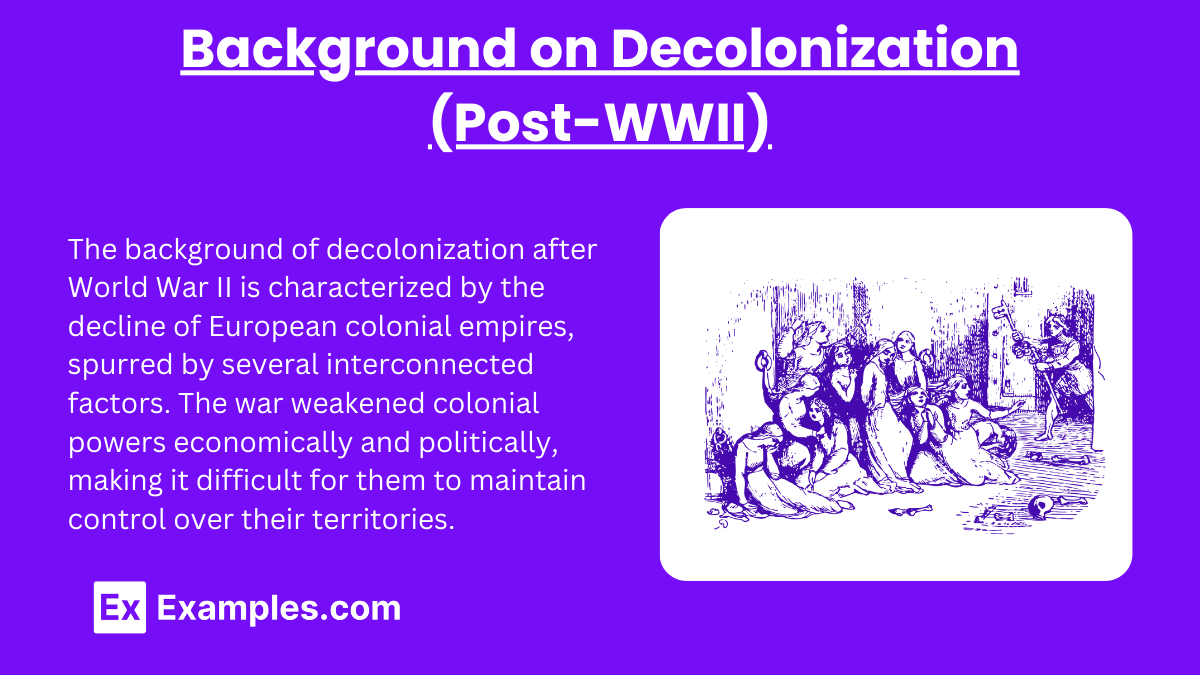
The background of decolonization after World War II is characterized by the decline of European colonial empires, spurred by several interconnected factors. The war weakened colonial powers economically and politically, making it difficult for them to maintain control over their territories. Anti-colonial movements gained momentum, driven by nationalist sentiments, educated elites, and international pressure advocating self-determination.
- Colonial Empires in Decline: After WWII, European powers (Britain, France, Belgium, Portugal, etc.) could no longer maintain their global empires due to economic strain, war exhaustion, and growing nationalist movements.
- Cold War Context: Decolonization occurred during the Cold War (1947–1991). The United States and the Soviet Union influenced the newly independent nations, often offering aid or ideological guidance (capitalism vs. communism).
2. Cold War Dynamics and Decolonization
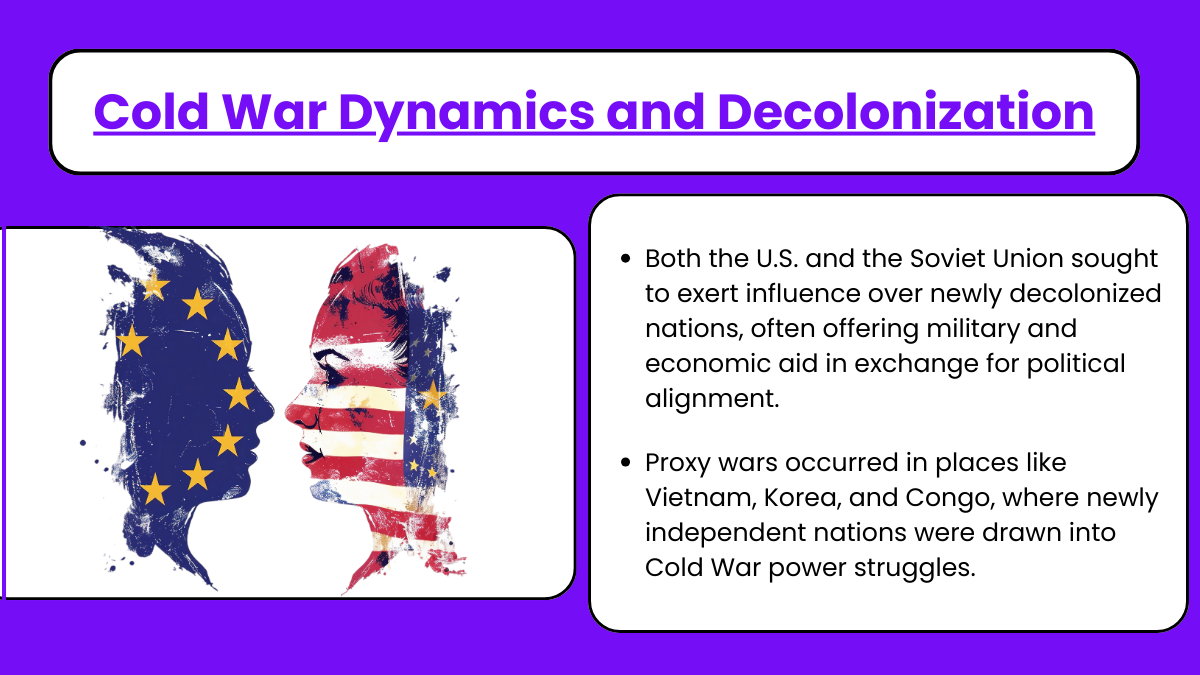
- Both the U.S. and the Soviet Union sought to exert influence over newly decolonized nations, often offering military and economic aid in exchange for political alignment.
- Proxy wars occurred in places like Vietnam, Korea, and Congo, where newly independent nations were drawn into Cold War power struggles.
- The Cuban Revolution (1959) inspired many anti-colonial movements and led to U.S. intervention in Latin America and elsewhere to prevent the spread of communism.
3. Overview of Decolonization
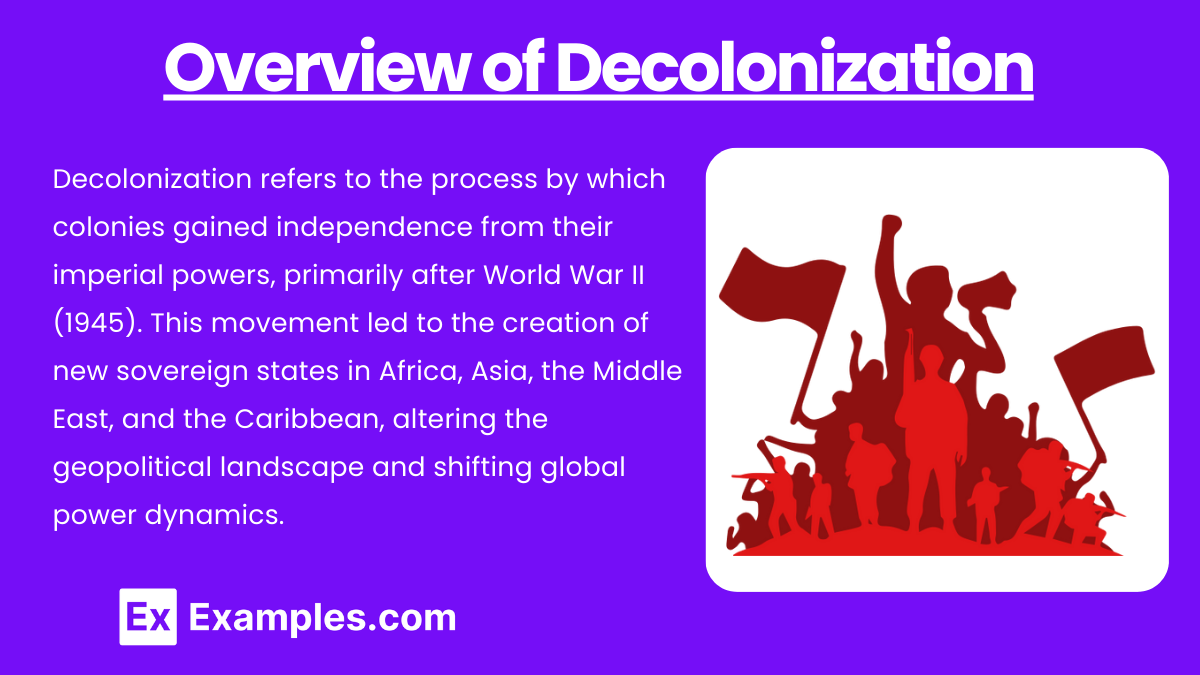
Decolonization refers to the process by which colonies gained independence from their imperial powers, primarily after World War II (1945). This movement led to the creation of new sovereign states in Africa, Asia, the Middle East, and the Caribbean, altering the geopolitical landscape and shifting global power dynamics. It was influenced by:
- Nationalism: Colonized peoples’ desire for self-determination.
- The decline of European powers: After World War II, European colonial empires were weakened economically and militarily.
- Cold War context: The U.S. and the Soviet Union often supported decolonization efforts, though for different ideological reasons.
- The role of international organizations: The United Nations encouraged decolonization and self-governance.
4. Long-Term Impacts of Decolonization
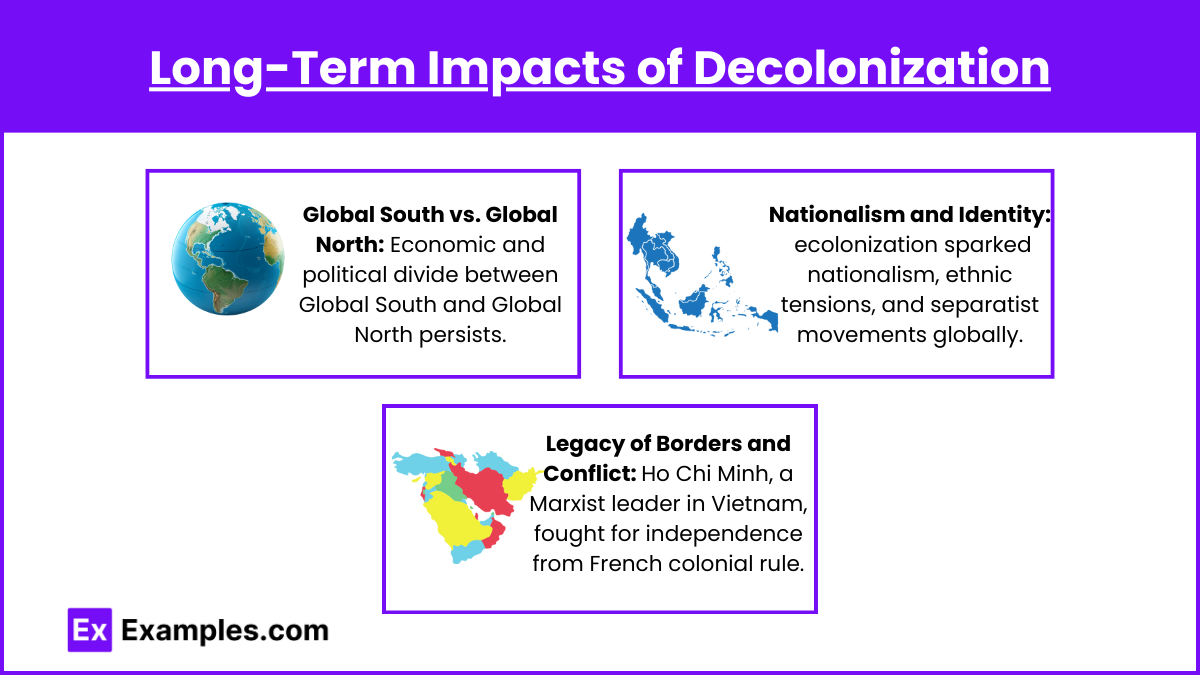
- Global South vs. Global North: The economic and political divide between former colonies (Global South) and the industrialized powers (Global North) persists, leading to continued discussions about economic justice, aid, and development.
- Nationalism and Identity: Decolonization fostered strong nationalist identities in many regions, but also ethnic tensions and separatist movements, leading to long-lasting conflicts in areas like the Middle East, Africa, and Southeast Asia.
- Legacy of Borders and Conflict: Arbitrary borders, especially in Africa and the Middle East, continue to fuel regional conflicts and wars. The partition of India and Palestine are prime examples of decolonization processes leading to lasting conflicts.
Examples
Example 1: India and Pakistan (1947)
Following British rule, India gained independence, and religious tensions led to the partition, creating Pakistan for Muslims.
Example 2: Ghana (1957)
The Gold Coast, a British colony in West Africa, became Ghana, the first sub-Saharan African nation to gain independence.
Example 3: Indonesia (1949)
After resisting Japanese occupation and Dutch re-colonization, Indonesia secured independence from the Netherlands following armed conflict and diplomacy.
Example 4: Algeria (1962)
Algeria won independence from France after a bloody eight-year war, fueled by nationalist movements and anti-colonial sentiments.
Example 5: Kenya (1963)
Kenya gained independence from Britain following the Mau Mau Uprising and diplomatic negotiations, leading to Jomo Kenyatta becoming the first president.
MCQs
Question 1:
Which of the following countries was the first to gain independence from British colonial rule in 1947?
A) Ghana
B) India
C) Kenya
D) Nigeria
Answer: B) India
Explanation:
India achieved independence from Britain on August 15, 1947, following a robust nationalist movement led by figures like Mahatma Gandhi and Jawaharlal Nehru.
Question 2:
Which conflict was a significant factor in Algeria’s struggle for independence from France?
A) The Vietnam War
B) The Mau Mau Uprising
C) The Algerian War of Independence
D) The Korean War
Answer: C) The Algerian War of Independence
Explanation:
The Algerian War of Independence (1954-1962) involved intense fighting against French colonial rule, leading to Algeria’s independence and highlighting nationalist fervor in colonized nations.
Question 3:
Which of the following statements best describes the impact of decolonization on global politics during the Cold War?
A) New states aligned exclusively with Western powers.
B) Newly independent states remained neutral and isolated.
C) Many new states became battlegrounds for Cold War ideologies.
D) Decolonization had little effect on the global political landscape.
Answer: C) Many new states became battlegrounds for Cold War ideologies.
Explanation:
Newly independent states often faced Cold War pressures, with both superpowers vying for influence, leading to internal conflicts and external interventions in many regions.

